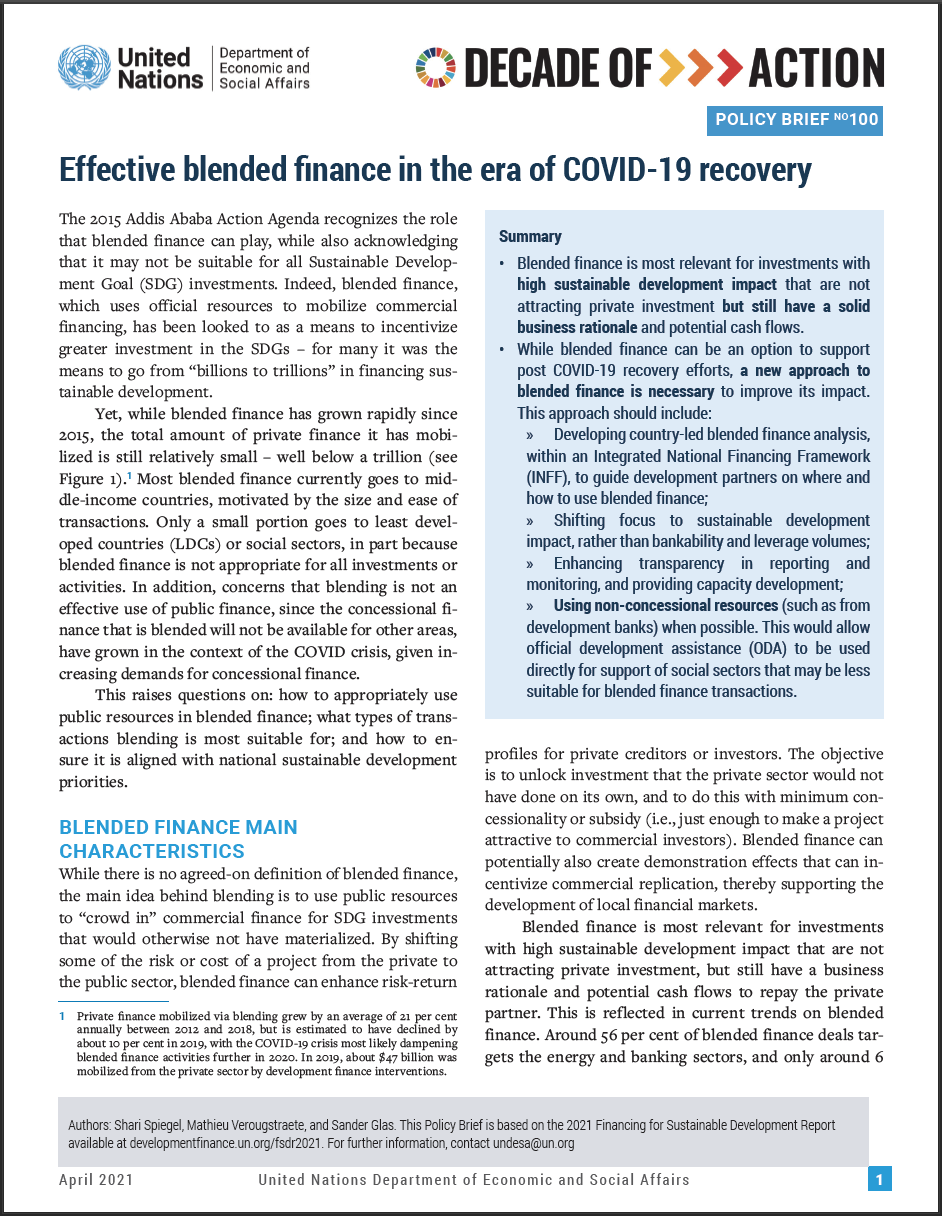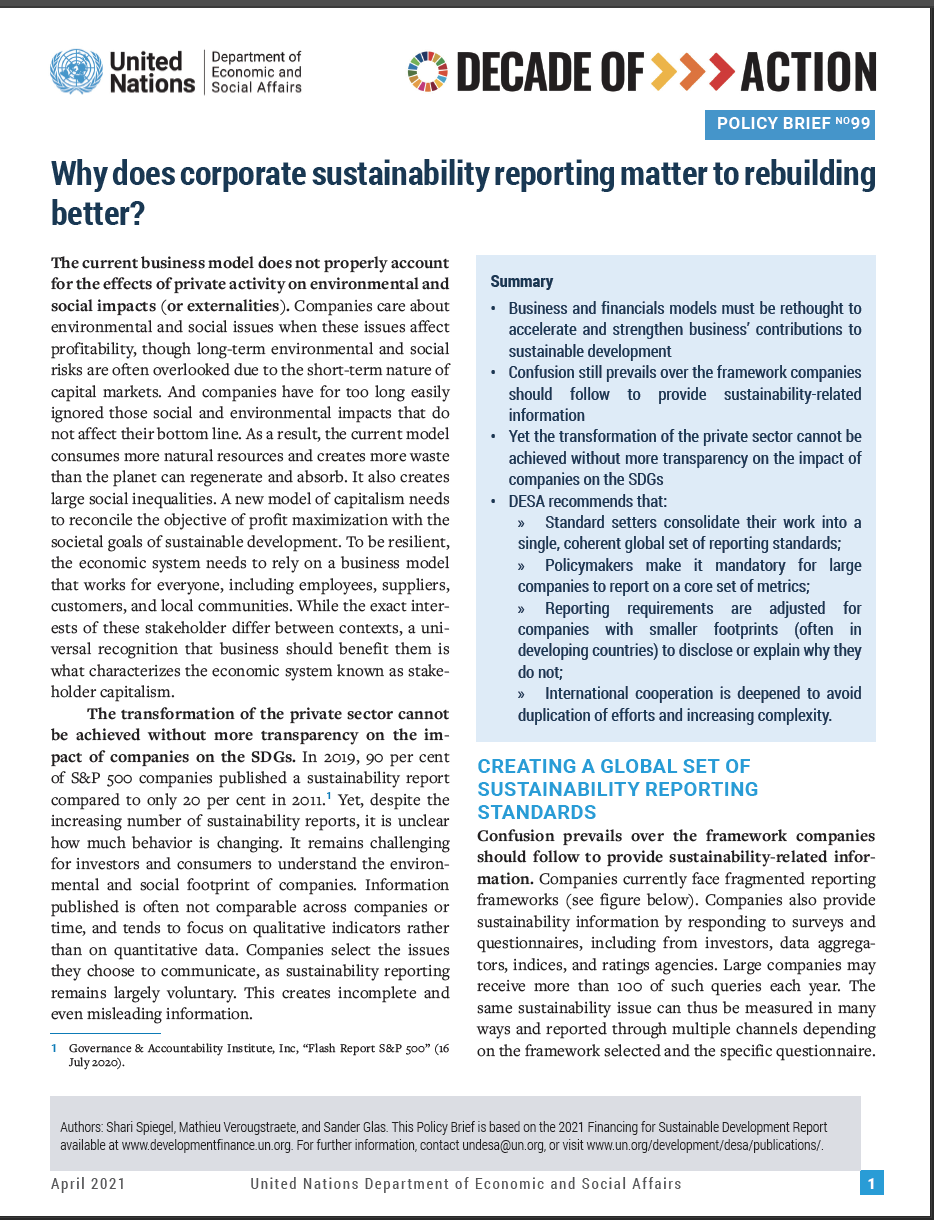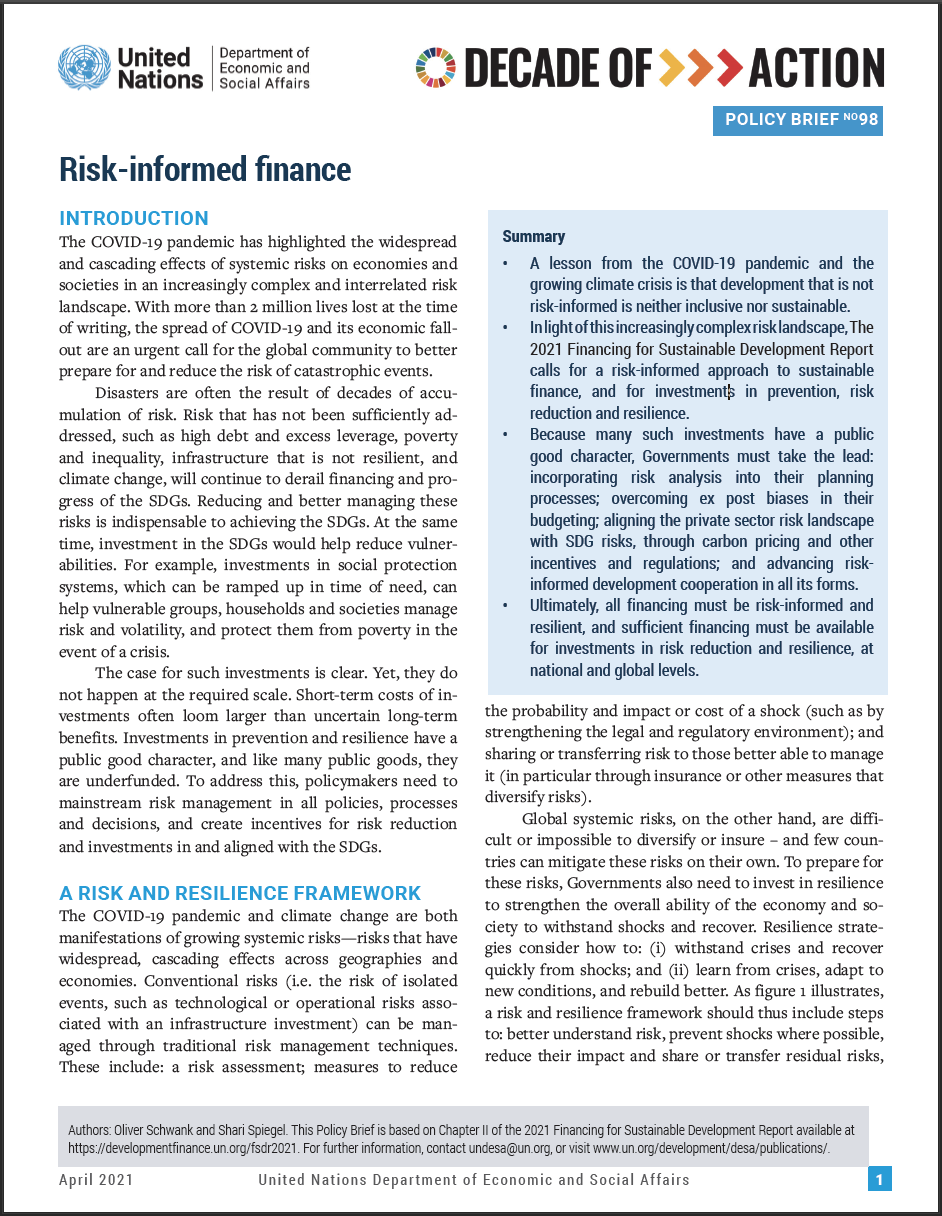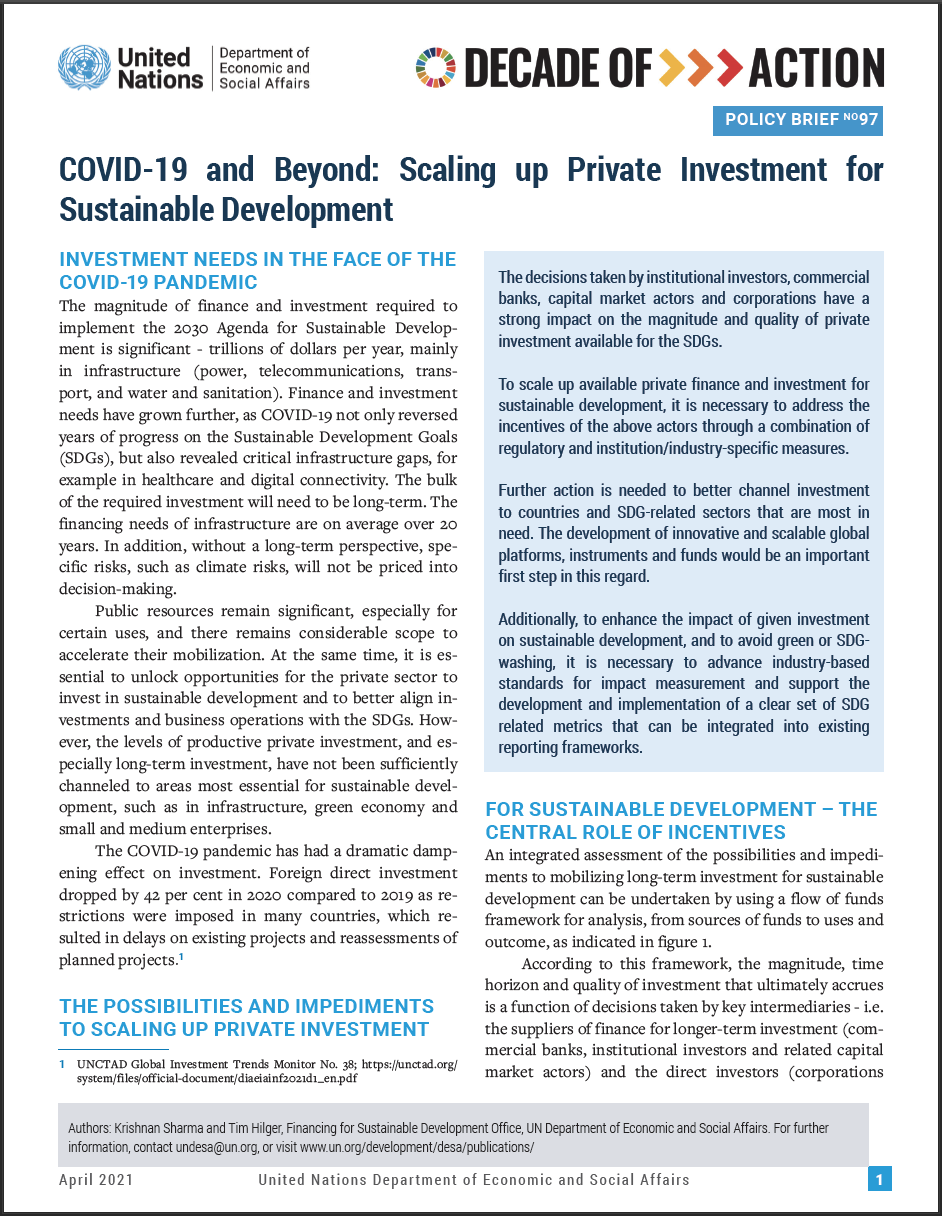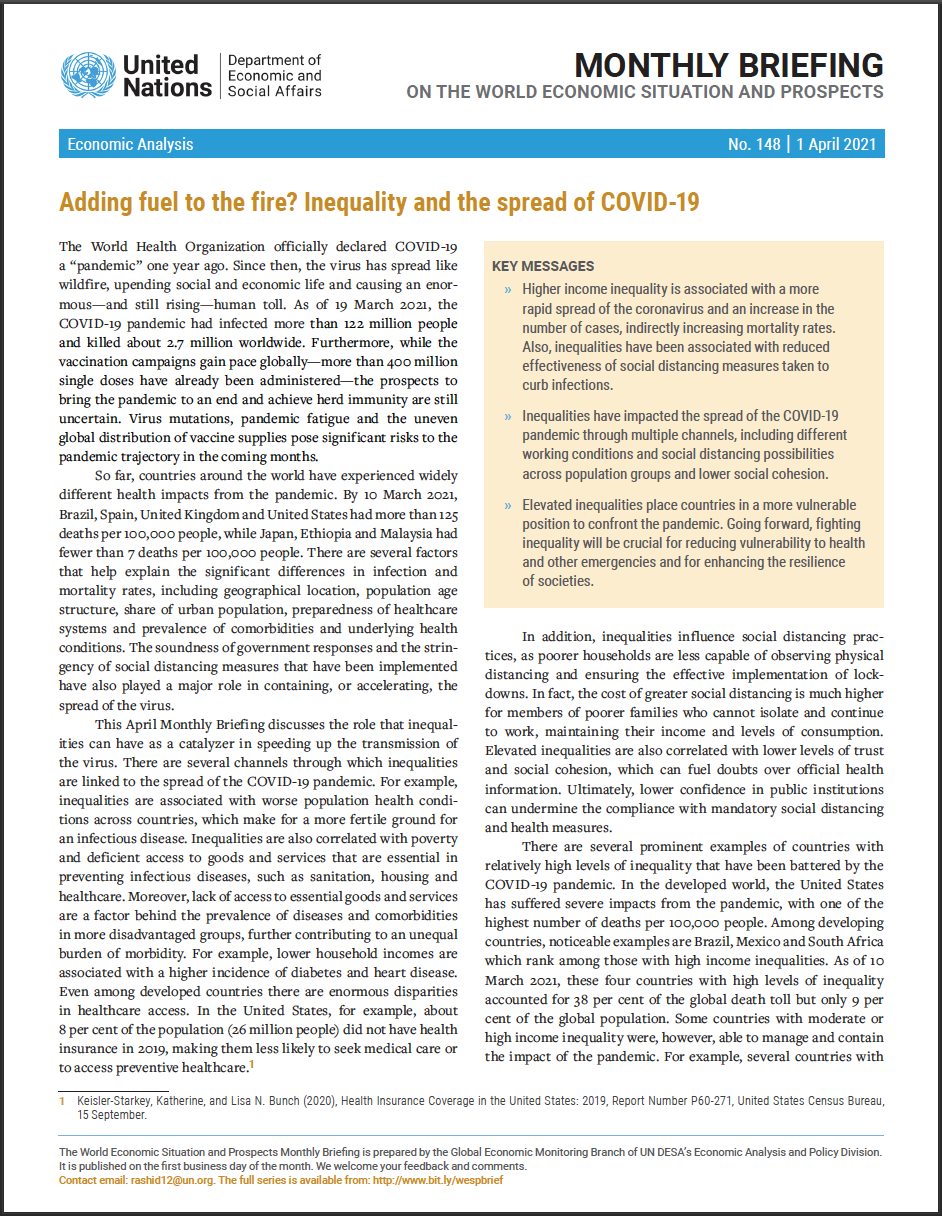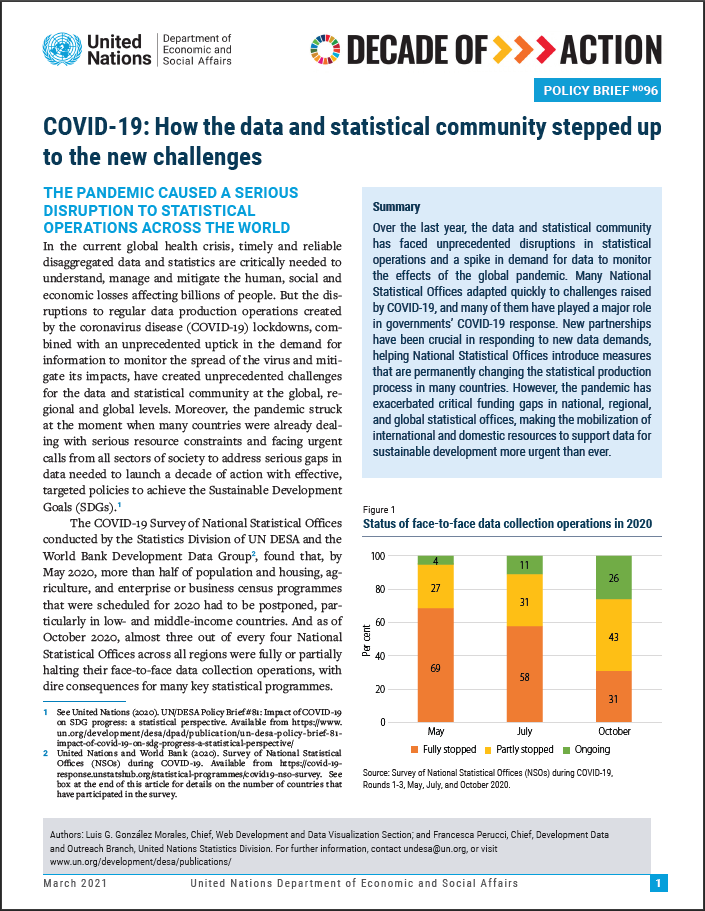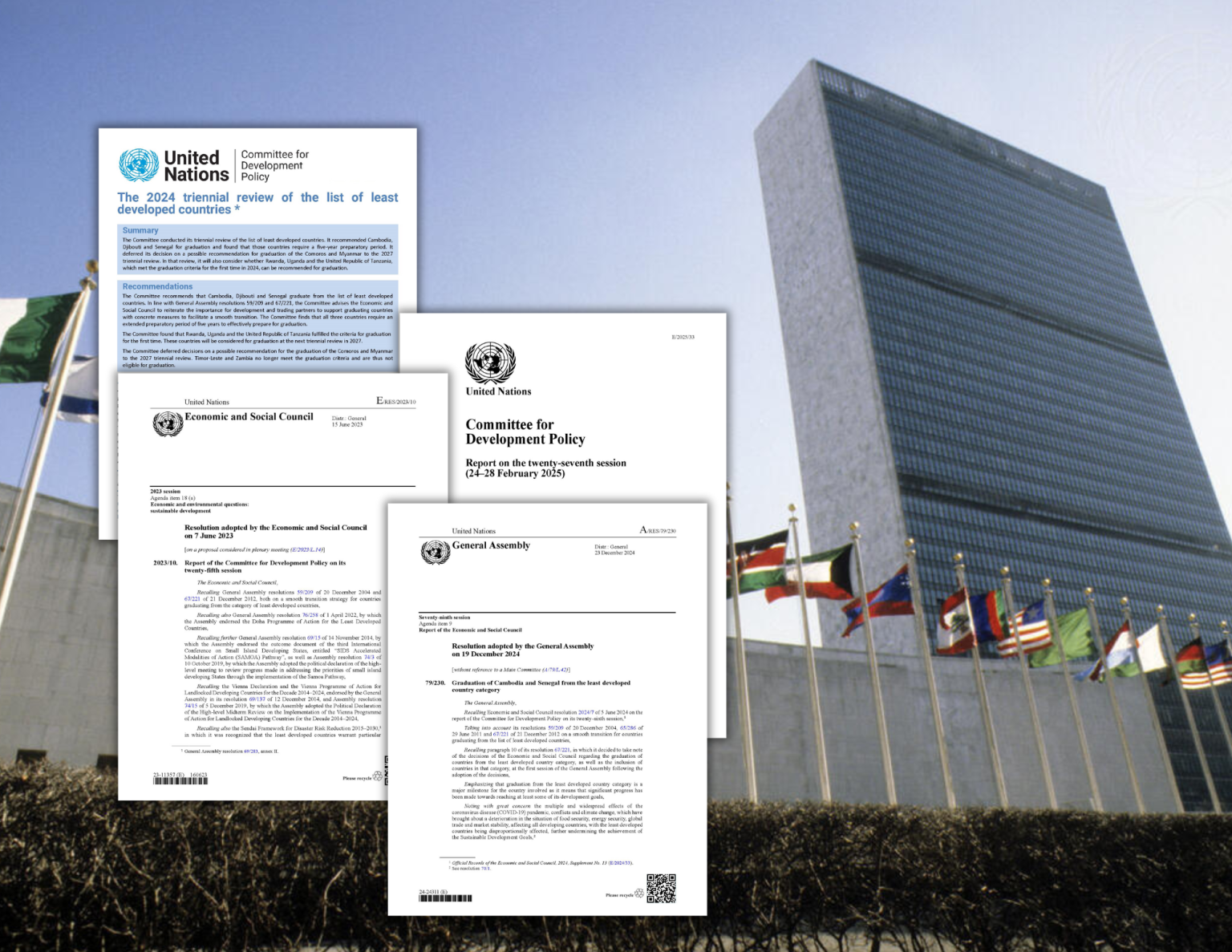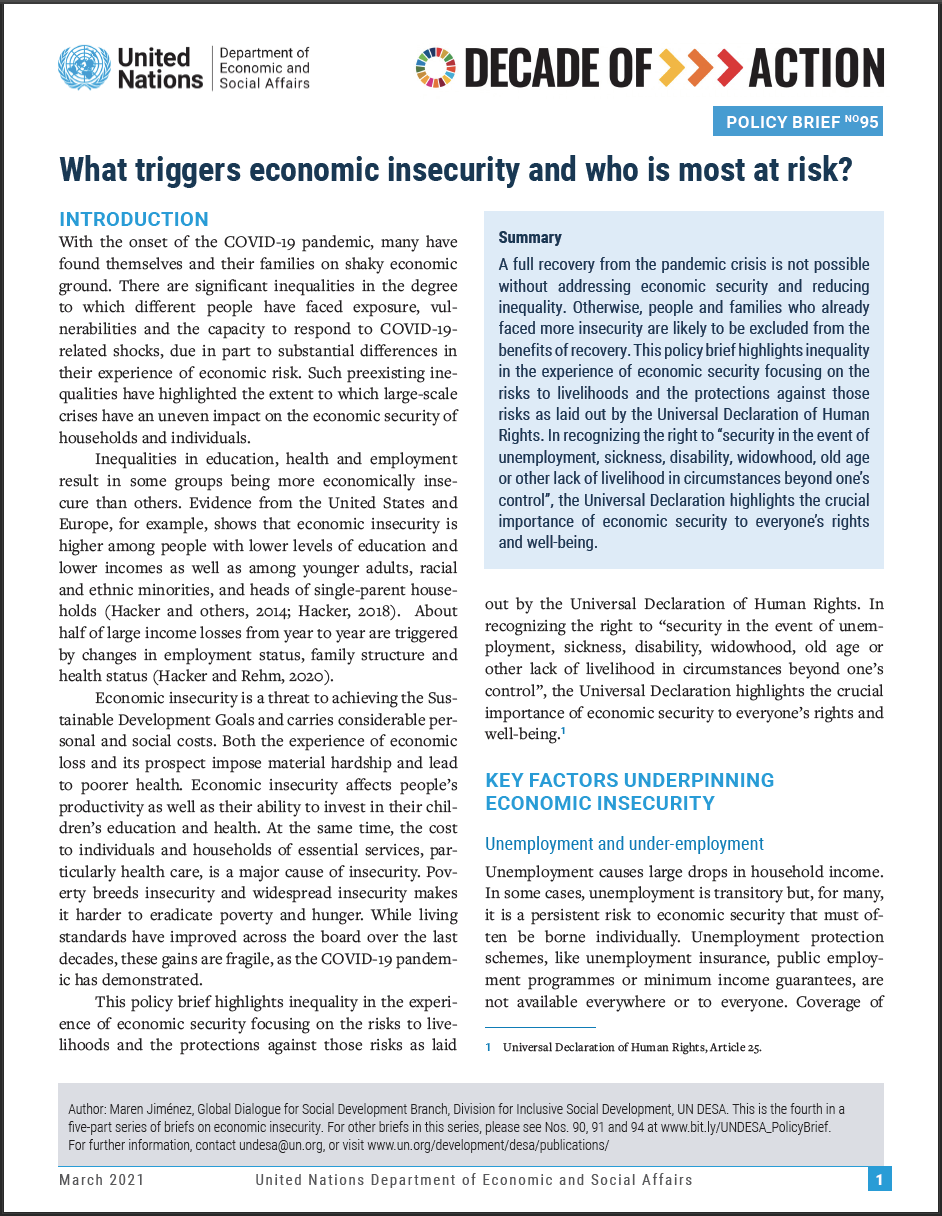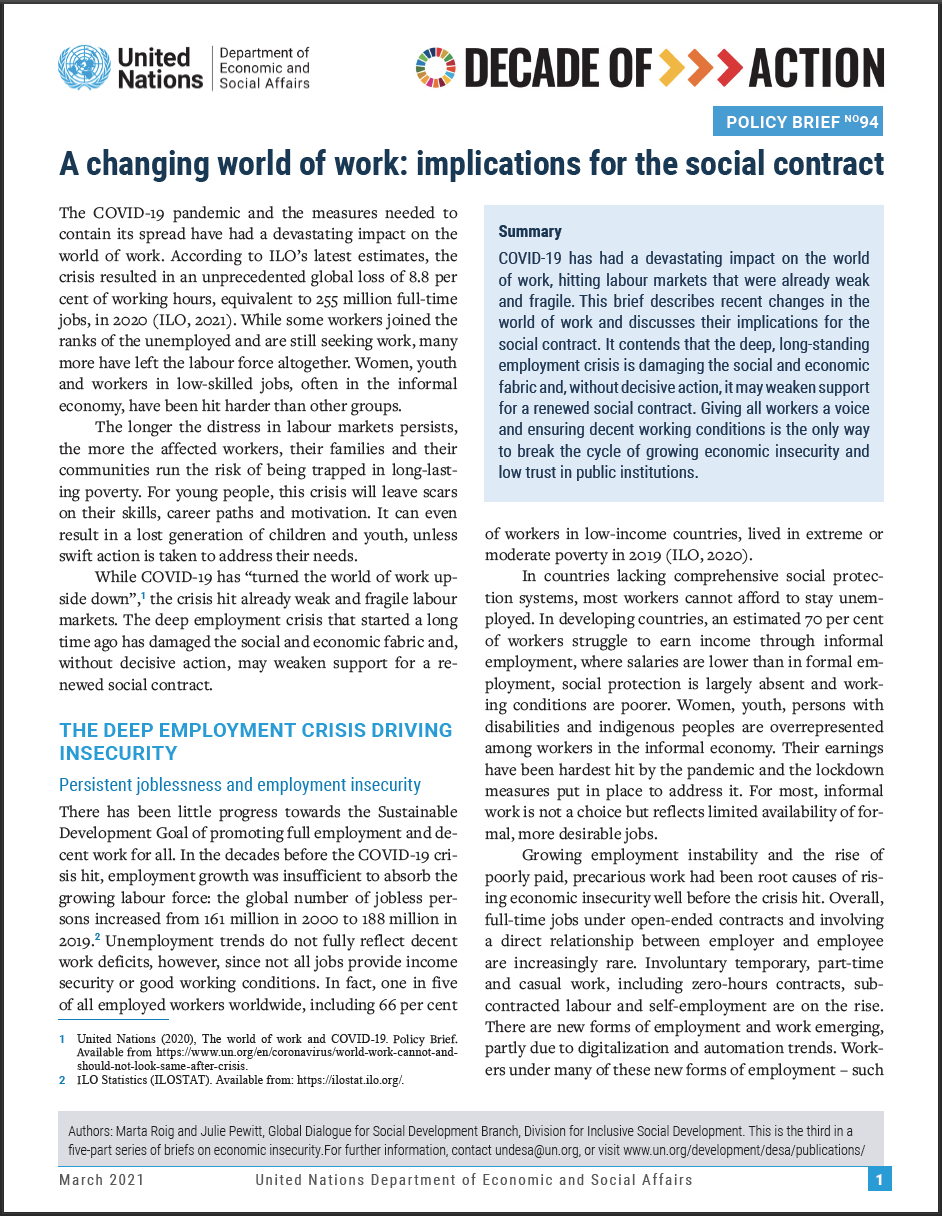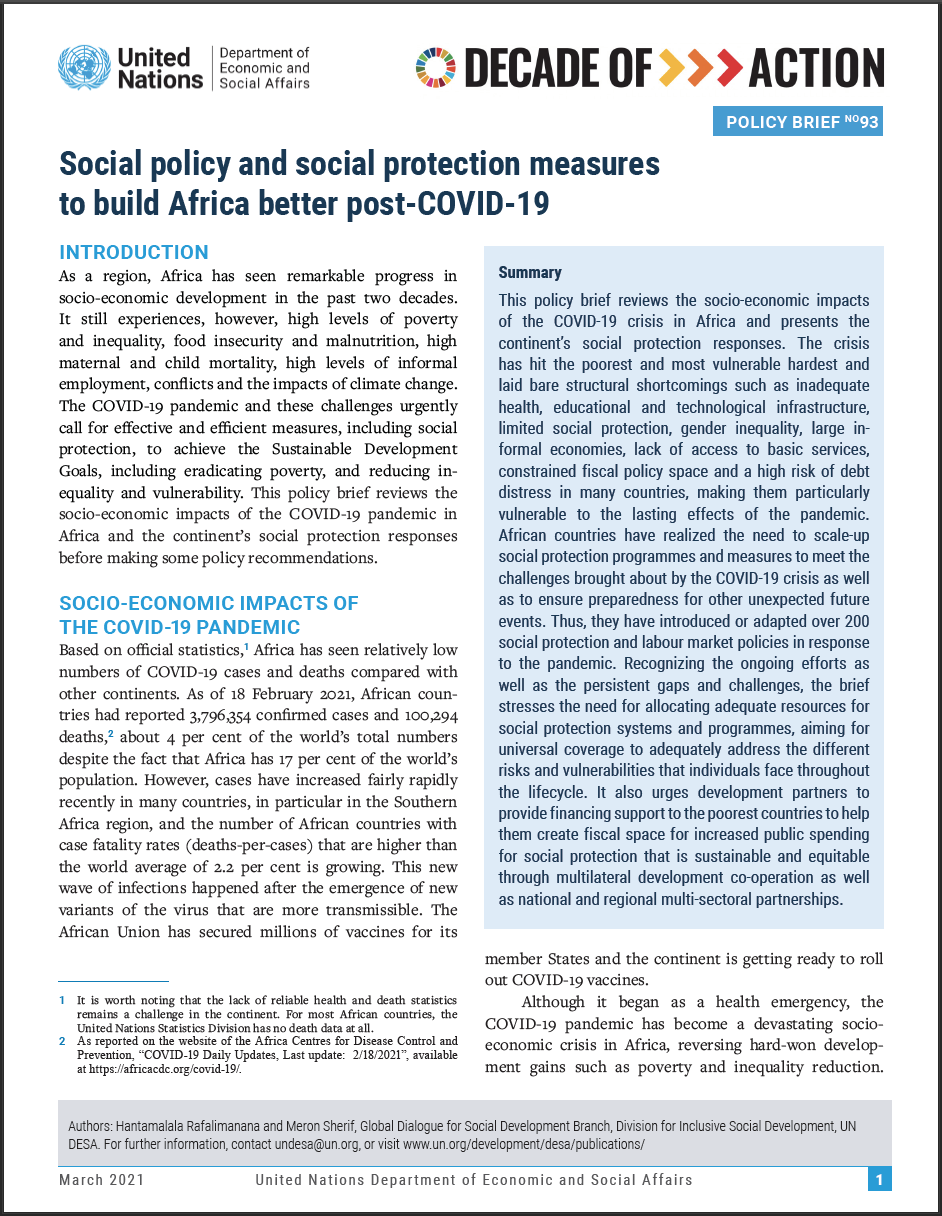Publications
Displaying 51 - 60 of 72
This policy brief highlights inequality in the experience of economic security focusing on the risks to livelihoods and the protections against those risks as laid out by the Universal Declaration of Human Rights.
of work, hitting labour markets that were already weak
and fragile.
 Welcome to the United Nations
Welcome to the United Nations
